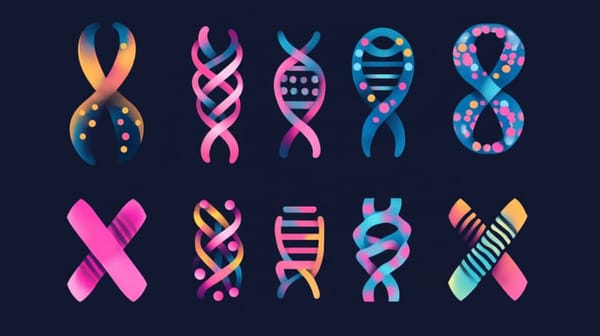Key Takeaways:
Dry fasting is:
- a practice where individuals abstain from both food and water for a certain period of time. Unlike other forms of fasting, dry fasting does not allow water intake, which can lead to dehydration and other risks.
- claimed to have several potential benefits, including weight loss, improved immune function and skin, and reduced inflammation. However, there is limited scientific evidence to support these claims, and the risks of dry fasting may outweigh any potential benefits.
- connected with following side effects: dehydration, mental fog, kidney stones, and urinary tract infections. Dry fasting should be approached with caution and only under medical supervision, especially for those with pre-existing medical conditions or who are pregnant or breastfeeding.
Searching for a way to better your physical and mental well-being? You might have heard of dry fasting!

It's becoming popular amongst health-savvy people. Dry fasting could bring numerous advantages. Find out what it is and why it could be the ideal addition to your pursuit of wellness!
Introduction to Dry Fasting
Dry Fasting: An In-Depth Look
Dry fasting is an ancient practice that involves abstaining from food and water for a certain period. Unlike traditional fasting, dry fasting forbids water intake, leading to accelerated weight loss, autophagy, and immune function. Many variations of dry fasting have emerged, such as intermittent fasting, time-restricted fasting, 5:2 fasting, and alternate-day fasting.
The benefits of dry fasting extend beyond weight loss and include improved skin, decreased inflammation, and mental clarity. However, it is not suitable for everyone, and prolonged dry fasting can lead to dehydration, kidney stones, and urinary tract infections. Consult with a dietitian before attempting dry fasting.
Research has unveiled that dry fasting has been practiced for centuries, but modern dry fasting has its roots in the Orthodox Christian tradition.
The Orthodox Church has been known to advocate dry fasting as a means of spiritual purification and is often performed twice a year, during Lent and before Christmas.
What is Dry Fasting?
In the high-performance world we live in, there's a unique form of fasting that's been gaining recognition, my friends, it's called dry fasting. Now, unlike the fasting we often talk about, which only involves giving up food, dry fasting takes it a step further, it's a complete abstinence from both food and water. Just picture this, you're relying on nothing but your body's internal reservoir of resources, water included, and those powerhouse metabolic reactions for energy.
People are attributing some remarkable health benefits to this practice, from reducing the wear and tear of inflammation, boosting metabolic wellness, all the way to enhancing longevity. It's about tapping into your body's innate capabilities, and you know I'm all about harnessing that personal power!
But remember, it's not one-size-fits-all, it's about finding what resonates with you. You might feel drawn to a short 24-hour dry fast, or maybe you're the kind of person who's up for a five-day challenge. But hydration before and after is paramount! You wouldn't run a marathon without stretching, right? Likewise, consult with your physician before diving into dry fasting, especially if you're managing any health conditions.
Dry fasting can be done for different periods, depending on an individual's goals and tolerance. Some people may opt for short dry fasting periods, such as 24 hours, while others may choose to undergo longer ones, such as five days. It is essential to stay hydrated before and after a dry fasting period to avoid dehydration. One should also seek medical advice before attempting dry fasting, especially if they have underlying health conditions.
This isn't a new trend, it's a practice rooted deep in history, used for spiritual and religious practices since ancient times. It's about connecting with yourself on a deeper level, and a lot of people today are finding that incorporating dry fasting into their routine is a powerful way to enhance their well-being. But remember, the keyword here is 'moderation'. It's about balance, not extremes.
Imagine the clarity and focus you could achieve, the lifting of that mental fog, the mood boost, all while working in tandem with a nourishing diet and regular exercise. It's another tool in your toolkit for creating an extraordinary, vibrant life. But as with any tool, it's how you use it that matters. So, be smart, be safe, and as always, live with passion!

Dry fasting can offer many benefits for one's physical and mental well-being, such as improving one's mood, increasing focus and clarity, and reducing mental fog. Coupled with eating healthy and regular physical activity, dry fasting can be an effective tool in achieving a healthy lifestyle.
Dry Fasting vs. Intermittent Fasting
Dry Fasting compared to Intermittent Fasting involves distinct differences that are essential to comprehend.
- Dry fasting prohibits drinking or consuming any food or liquid. It is usually confined within a 24-hour period but may reach up to 72 hours. It is considered by some as an efficient means of detoxification.
- Intermittent fasting comprises cycles of consuming and restricting food, typically over eight-hour intervals daily and supper avoidance. It is recognised to assist in weight reduction, enhance metabolism, and lower harmful blood cholesterol levels.
- Dry fasting must be carried out under expert guidance since it has numerous health hazards and must not last more than three days. Intermittent fasting enables individuals to regulate their food intake without limiting their diet's entire spectrum while still losing weight in a healthy way.
Beyond these differences, it is worth noting that both practices' effects on the human body vary based on the individual and should be approached with caution.
A fact-based real-life experience of dry fasting can be traced back through history to ancient times when it was used for religious purposes. Dry fasting was an important part of Jewish Yom Kippur Day's culture, where participants were required to fast from sundown until dark the following day as a sign of penitence for previous sins.
Reported Benefits of Dry Fasting
Dry fasting is a type of fasting where an individual refrains from both food and water for a specific period. The benefits of dry fasting have been reported by individuals who practice it. Here are some of the reported benefits:
- Improved detoxification: Dry fasting helps the body to get rid of toxins and waste products at a faster rate compared to other types of fasting.
- Increased fat burning: Dry fasting encourages the body to use stored fat for energy, which aids in weight loss.
- Reduced inflammation: Dry fasting can help reduce inflammation in the body and may provide relief for those suffering from conditions such as arthritis.
- Better digestion: Dry fasting gives the digestive system a break, allowing it to heal and function effectively.
- Improved skin health: Dry fasting can help improve the appearance of the skin by reducing acne and improving complexion.
- Increased mental clarity: Some individuals have reported experiencing improved mental clarity and focus during dry fasts.
It is important to note that dry fasting can be dangerous if not done properly. Consultation with a medical professional is recommended before attempting it.
In addition, it is important to ease into dry fasting gradually and avoid overexertion during the fast. Once the fast is broken, it is important to rehydrate slowly and consume nutrient-rich foods.
Incorporating dry fasting into a healthy lifestyle may provide various benefits for individuals seeking to improve their overall health and well-being.
Weight loss
Imagine being able to transform your body, to unleash its potential to manage weight more effectively. That's where dry fasting enters the picture, my friends. This isn't your typical fast; it's a complete break from both food and water for a specific period, pushing your body to dig deep and tap into its own reserves.
What this does, you see, is it triggers a powerful metabolic shift, from relying on glucose to utilizing fat for energy. And why is that important? Because this shift, fueled by lower insulin levels, can potentially be a game-changer in your weight loss journey.
But the power of dry fasting doesn't stop there. It's been observed to help regulate blood sugar levels, reducing insulin resistance for those grappling with type 2 diabetes. Plus, it can dampen inflammation, and we know that inflammation can often be a stealthy culprit behind unwanted weight gain.
Now, let's be clear, embarking on a dry fasting journey should be in alignment with medical advice tailored to your unique health needs. Maximizing the benefits of dry fasting without any potential fallout requires professional guidance, a trusted health expert who can offer personalized advice.
So, are you ready to harness the potential of dry fasting? To take deliberate, actionable steps towards health and vitality today? Don't let this incredible opportunity pass you by. As always, remember to live with passion and make every day count!
Improved immune function and skin
A dry fasting regime can have a significant impact on immune function and skin health. The body activates anti-inflammatory responses that enhance cellular immunity, leading to improved resistance against infections. Simultaneously, the absence of fluid intake helps eliminate toxins from the skin, leading to glowing and rejuvenated skin.

Numerous scientific studies indicate that short-term dry fasting can be beneficial for improving immune function by enhancing lymphocyte count and activation. Moreover, it can also help prevent chronic inflammation responsible for various age-related diseases like cancer, autoimmune conditions, etc.
Interestingly, dry fasting also triggers Autophagy - the body's natural healing mechanism that detoxifies old and diseased cells. In return, it leads to repair and regeneration of new cells resulting in youthful-looking skin. Several individuals have reported the disappearance of saggy skin after practicing dry fasting.
As an example from real life, a 32-year-old woman followed a strict Dry Fasting regime for six months to cure eczema and patchy skin problems she had been struggling with since childhood. Surprisingly, after day 2 of DRF, her condition started improving, her skin started glowing within two weeks as the gut bacteria balanced out with Detoxification processes. By the end of her six-month journey with DRF, she was completely recovered from all these ailments with no reoccurrences till today.
Reduced inflammation
Dry fasting is associated with a decrease in the body's inflammatory response. This is due to the reduction of oxidative stress and the activation of adaptive stress-response pathways during dry fasts. The result is a decreased risk of chronic inflammatory diseases, such as arthritis, heart disease, and cancer.
In addition to reducing inflammation, dry fasting may also improve immune function by increasing autophagy (cellular self-cleaning) and enhancing natural killer cell activity. Furthermore, it has been observed that dry fasting can aid in weight loss, increase mental clarity and reduce allergies.
It's worth noting that Dry fasting has ancient roots. Many religions incorporate regular fasting into their traditions. As for dry fasting specifically, it was practiced by many cultures throughout history including ancient Egyptians and Greeks. Today, some people practice dry fasting as part of their spiritual or health regimen.
Risks and Side Effects of Dry Fasting
Imagine stepping into a realm where you're not only abstaining from food but also water. That's dry fasting - an intense, yet potentially transformative lifestyle practice that may seem like a tall order, yet holds the promise of detoxification, weight loss, and even a surge in energy levels. However, let's make no mistake, with these potential rewards come risks that we must confront head-on to prevent any negative outcomes.
During this journey, your body will start to generate ketones, which can help tame your appetite and foster weight loss. Now, this isn't a one-way street. It could also lead to dehydration, bouts of dizziness, and fatigue. And we have to be mindful that long-term dry fasting can trigger more serious issues like kidney damage, electrolyte imbalances, and in extreme cases, could be life-threatening.
That's why it's absolutely essential to team up with a healthcare professional before you venture into dry fasting. Make sure your body is ready and resilient enough to handle this intense process. If you decide to dive in, remember, start small. Begin with shorter periods and then gradually expand your fasting window, always remembering to rehydrate and top up your electrolytes.
And if you're looking to mitigate some of these risks, consider wet fasting, where you abstain from food but stay hydrated with water. This approach allows you to tap into some of the benefits of dry fasting, while significantly lowering the risk of dehydration and electrolyte imbalances. Remember, your health comes first, and there are always ways to adapt and optimize these practices to suit your unique needs. Live with passion, and stay healthy!

Dehydration
Follow these steps to prevent dehydration during dry fasting:
- Drink plenty of fluids before starting your fast.
- Avoid intense physical activities.
- Stay in a cool environment and avoid sunlight exposure.
- Consume fruits and vegetables that have high water content.
- If you're experiencing dehydration symptoms, stop your fast immediately and consult a doctor.
Experts recommend limiting dry fasting to less than 24 hours as it can cause harmful effects on the body's natural functioning.
It is necessary to take precautions when beginning or extending one's fast to ensure optimum physical health. Drying fasting should be approached with caution as it causes risks such as electrolyte imbalance, muscle breakdown, and even organ failure in extreme cases.
A friend attempted dry fasting for two days but had to break it after suffering from severe fatigue and dehydration. She learned from her experience that the side effects were not worth risking her health and has instead opted for intermittent fasting.
Mental Fog
Dry fasting can lead to cognitive impairment, including confusion and difficulty concentrating. This occurs due to the lack of hydration essential for proper brain function. The human brain is composed of 75% water, and dehydration affects all aspects of brain functioning.
In addition to confusion and poor concentration, prolonged dry fasting may result in severe mental fog. This could emerge from electrolyte imbalances arising from immoderate water loss leading to neuronal cell damage. Mental fog makes one disoriented, forgetful, and generally dysfunctional.
It's essential to note that the severity of these effects hinges on factors such as duration, individual fluid requirements, pre-existing medical conditions like diabetes or kidney disease before embarking on dry fasting or other extreme diets involving fluids.
Kidney stones
Urinary Calculi - A Comprehensive Guide to the Formation and Treatment
Urinary calculi, commonly known as kidney stones, are formed from excess minerals in urine that stick together. They can range in size from a grain of sand to the size of a golf ball, and they can cause severe pain when passing through the urinary tract.

Various factors can contribute to their development, such as dehydration, a high-protein diet, and a family history of urinary calculi. Since they block the urinary tract and cause discomfort so severe it mimics childbirth pain levels - timely diagnosis is critical.
Prevention methods include drinking plenty of water, consuming less oxalate-rich food such as spinach and chocolate. Treatments involve shock wave lithotripsy or surgery if stones become too large to pass.
Urinary tract infections
A urinary tract infection (UTI) is a bacterial infection that occurs in any part of the urinary system, including the bladder, urethra, kidneys, and ureters. It can cause pain or discomfort while urinating, frequent urges to urinate, cloudy or foul-smelling urine and lower abdominal pain.
Untreated UTIs can lead to serious complications such as kidney damage or bloodstream infections. Prevention includes staying hydrated, avoiding holding urine for too long, wiping from front to back after using the toilet, and urinating after sexual intercourse.
In addition to these preventive measures, some natural remedies like cranberry juice or supplements can help prevent UTIs due to their antibacterial properties. It's important to seek medical attention if symptoms persist or worsen.
Why Dry Fasting is a Risky Prospect
Dry fasting is a risky prospect due to the potential negative health impacts involved. This form of fasting involves refraining from consuming both food and water, which can lead to dehydration, electrolyte imbalances, and a weakened immune system.

Additionally, extreme hunger and thirst can cause feelings of dizziness and weakness, making it difficult to carry out routine activities. It is important to consult with a healthcare professional before attempting dry fasting to ensure it is safe for individual circumstances.
While some proponents of dry fasting believe it can provide health benefits, such as detoxification and weight loss, there is little scientific evidence to support these claims. In fact, the lack of hydration can increase the risk of kidney damage and reduce the body's ability to flush out toxins. It is also important to note that dry fasting can be particularly dangerous for those with pre-existing medical conditions or those who are pregnant or breastfeeding.
In a notable case, a woman in Russia reportedly died after attempting a 13-day dry fast under the direction of a self-proclaimed "healer." This tragic incident emphasizes the potential danger of extreme fasting practices and the importance of seeking professional guidance.
Overall, dry fasting presents significant risks and should not be undertaken without proper medical supervision. It is crucial to prioritize health and safety over the potential benefits of any fasting or dieting practice.
Conclusion and Recommended Diet Practices
Maintaining proper diet practices is essential for overall well-being. To achieve optimal health, it is crucial to follow a nutritious diet that includes a variety of food groups.
A diet plan should be tailored to the individual's needs and preferences. It is important to avoid processed and sugary foods and opt for whole, nutrient-dense foods. Additionally, regular fasting can have health benefits and should be approached with caution.
When it comes to fasting, dry fasting is gaining popularity. Dry fasting is a type of fast that involves abstaining from both food and water. It should be noted that this type of fasting can be dangerous and should only be done under the supervision of a medical professional. It is generally recommended to start with shorter periods of fasting, and gradually increase the duration.
Looking back at history, fasting has been practiced for centuries for various reasons including religious and therapeutic purposes. In the early 1900s, fasting was used as a form of treatment for various diseases. Today, fasting is gaining attention for its potential health benefits and is being studied for its role in disease prevention and management.
In summary, maintaining a healthy diet is essential for optimal health. Fasting can be a complementary practice when done cautiously and under the guidance of a medical professional. Dry fasting, though gaining popularity, should be approached with caution due to potential risks. It is important to do thorough research and consult with a healthcare professional before embarking on any fast or diet changes.
Five Facts About Dry Fasting:
✅ Dry fasting is a type of fasting where one abstains from both food and water. (Source: Healthline)
✅ It is different from traditional water fasting, which allows for the consumption of water during the fast. (Source: Medical News Today)
✅ Dry fasting is believed to have several health benefits, including weight loss, improved digestion, and increased energy levels. (Source: Insider)
✅ It is recommended to only engage in dry fasting for short periods of time, as extended dry fasting can be dangerous and lead to dehydration. (Source: Verywell Fit)
✅ Dry fasting has been practiced for centuries in several cultures, including Islam and certain Eastern Orthodox Christian sects. (Source: The Guardian)
FAQs about What Is Dry Fasting?
What is Dry Fasting?
Dry fasting is a practice where a person abstains from both food and water for a specific period. This technique is considered an extreme form of fasting, and it has been used for centuries in various cultures for religious, spiritual, and health purposes.
How does Dry Fasting work?
When a person is dry fasting, their body uses fat as fuel instead of carbohydrates. It pushes the body into a state of ketosis, where the liver produces ketones from the stored fat. Dry fasting can lead to quick weight loss due to the body's depletion of glycogen and fat stores.
What are the benefits of Dry Fasting?
Dry fasting has been associated with numerous health benefits, including detoxification of the body, improved mental clarity, increased focus, and less hunger. Some studies have shown that dry fasting can help reduce inflammation and boost the immune system.
How long can one go for Dry Fasting?
People can dry fast for different periods, ranging from a few hours to several days. The maximum recommended period for dry fasting is 24 hours, as extended fasting can lead to dehydration and other health complications.
What are the risks associated with Dry Fasting?
Dry fasting is an extreme form of fasting that can lead to dehydration, electrolyte imbalances, headaches, dizziness, and fatigue. It is crucial to consult a doctor before attempting dry fasting, especially if you have any underlying health conditions.
Can everyone practice Dry Fasting?
Dry fasting is not recommended for everyone, especially individuals with medical conditions such as diabetes, hypertension, or kidney disease. Pregnant women and persons under 18 years old should also avoid dry fasting. It is best to consult a doctor before attempting this practice.





